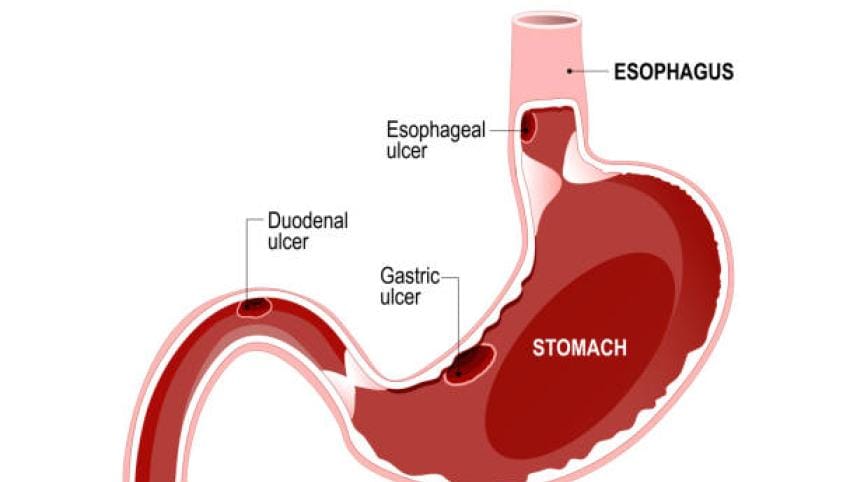Navigating Ramadan with ulcer

An open peptic ulcer is a lesion in the upper digestive tract. Stomach or gastric ulcers form when the thick mucus layer that protects the stomach from digestive juices breaks down, resulting the stomach lining tissues being eroded by digesting acids. The most common symptom is a burning or aching sensation between the chest and the belly button. It usually lasts a few minutes to many hours when your stomach is empty.
Symptoms of stomach ulcers include bloating, burping, acid reflux, and heartburn (burning sensation in the chest). Discomfort decreases with food and drink. So, throughout Ramadan, try to keep the following diet recommendations to avoid discomfort.
What to avoid
- Fried, greasy, and acidic meals and fruits (citrus fruits such as lemons, limes, grapefruits, and oranges).
-Spicy meals and canned/processed foods, particularly tomato-based goods. Many processed foods include a high concentration of chemicals, including preservatives, which may aggravate gastritis.
- Foods high in sugar and processed carbs.
- Overeating at the break of fast and sehri.
- Caffeine-containing beverages such as tea, coffee, sodas, etc. These cause you to flow more urine, which contains vital mineral salts that your body requires during the long day of fasting.
-Smoking has been linked to gastritis and peptic ulcer disease. Ramadan is an excellent time to quit smoking.
Consider your eating habits
-Carbohydrates or slow-digesting food at sehri so that the food lasts longer, making you less hungry and more active for the rest of the day.
-Dates are high in sugar, fibre, carbs, potassium, and magnesium.
-Eat oven-grilled dishes instead of fried or fatty ones.
-Bananas are high in carbs, potassium, and magnesium.
-Protein and fibre are abundant in almonds. A nutritious drink made with ground almonds and milk.
-Eat in moderation and smaller portions, and break the fast as soon as possible.
-Do not forget to take your prescribed medications at sehri while fasting.
-Drink as much water, non-acidic fruit juices, and potassium-containing liquids as possible between fasting and night so that your body can regulate fluid levels for the next day.
As fasting is obligatory for Muslims in the holy month of Ramadan, most Muslims like to keep the fasts. However, those with ulcers who want to fast in Ramadan should follow a healthy diet that is less spicy, fatty and acidic to ease their ulcer symptoms.
E-mail: ramisha.maliha@thedailystar.net



 For all latest news, follow The Daily Star's Google News channel.
For all latest news, follow The Daily Star's Google News channel.
Comments